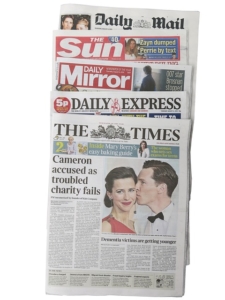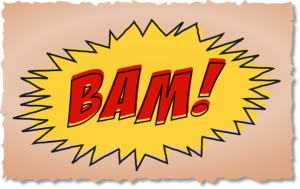Top Copywriting Headlines Tips
Writing headlines is an acquired skill. These practical copywriting headlines tips can help you not only write better headlines but also create them faster.
Table of Contents
Tips to get started writing headlines
Try one or all of these tips to get your headline juices flowing.
- One stumbling block to writing a piece’s headline is simply getting started. Here’s how to side step that problem: instead of writing the headline first, jump in and work on the piece. Once you have all or part of your ideas on paper, go back and write a few headlines.
- Or try this method: write a few headlines before you start writing the piece, as a way to guide you through putting together the content. Write a few headlines during the process. Write a few after you’re done. Soon you’ll discover which approach is best for you – before, during, or after.
Tips for what content to use in headlines
 Identify the main idea of the piece. Create a headline around it.
Identify the main idea of the piece. Create a headline around it.- Identify your main keyword. Use it – or a word that is closely related – in the headline.
- Write plenty of headlines for just one piece. Give yourself a selection of headlines to re-work, edit, and choose from.
- Try different headline formulas. They work.
- Put yourself in the shoes of the reader. What will pull her into your piece? Write a headline to suit her.
- Be as specific as possible. (Generalized headlines are boring.)
Tips for headline mechanics
- Capitalize the first word in your headline.
- Keep it simple. Write headlines at a grade 7 reading level or less. Use your word processor’s readability statistics function to check your headline’s reading level.
- Use more verbs and fewer nouns.
- Use short, active verbs: kill, jump, shout
- Avoid forms of the verb “to be” (is, are, was, and were.)
- Write headlines in present tense (“Johnson wins in Ventura”).
- Avoid writing in first person (I, me), unless using a quote.
- Avoid puns and fancy wording, which often confuse or mislead readers.
Tips for refining your headline
 Use this checklist of copywriting headlines tips to evaluate and re-work your material.
Use this checklist of copywriting headlines tips to evaluate and re-work your material.
- Does the headline grab attention or incite curiosity?
- Does the headline address something specific?
- Does the headline offer useful information or a benefit to the reader?
- If the headline makes a promise, does the content that follows deliver on that promise?
- Is it true? (Readers hate being lied to.)
- Does the headline convey urgency, moving the reader to take action or motivate them to want to know more right away?
- Does the headline convey uniqueness? (Boring headlines mean your piece won’t get read.)
- Is the headline clear and direct – avoiding pun, elaborate wording, or double-entendre?
- Does the headline use strong, interesting, active verbs?
- Is the headline’s length appropriate for the medium (article, email campaign, web page, direct mail package, social media post, and so forth)?
If you answer “no” to one or more of these questions, go back and rewrite your headline.
About the author: Kathy Widenhouse
 Kathy Widenhouse is a freelance Christian writer. She produces content and copywriting for faith-based organizations and nonprofits.
Kathy Widenhouse is a freelance Christian writer. She produces content and copywriting for faith-based organizations and nonprofits.


 art-copywriter-collective
art-copywriter-collective
Lovely Kathy. But don’t overlook the power of the word ‘you’ in a headline. If you can possibly work a ‘you’ or ‘your’ into your headline you add considerably more power to your headline.